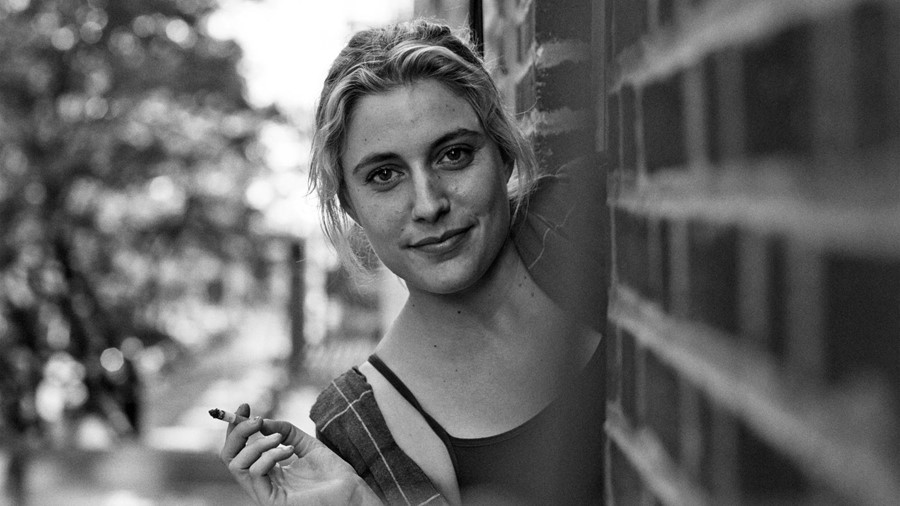As the BFI in London screens a season devoted to her oeuvre, we take a look at the formative, low-budget work of actor and director Greta Gerwig
In the mid to late 2000s, when most films were about people with fringes discussing first-world problems, Greta Gerwig carved a niche for herself as US indie cinema’s preeminent haver of first-world problems. Providing a jolt of electricity to the decade’s low-budget ‘mumblecore’ scene, she perfected a persona that plugged effortlessly into tropes about aimless millennial life, the steady creep online playing mood music to a world of misfiring relationships and workplace ennui.
By the time of Greenberg (2010), her offbeat portrayals of restless, slightly narcissistic women in their early twenties shaded seamlessly into portrayals of restless, slightly narcissistic women in their late twenties, and Gerwig’s collaborations with Noah Baumbach, now her husband, helped take mumblecore into the mainstream. A few missteps into Hollywood rom-com territory followed (Arthur, No Strings Attached) but by then Gerwig was already plotting her next step, a move into the directors’ chair for Lady Bird and Little Women, which racked up 11 Oscar nominations between them. Suddenly, the one-time indie darling was Hollywood’s most in-demand director – and when Barbie came knocking for a big-screen makeover, she answered.
With a career retrospective at BFI Southbank in London this week, we delve into the formative work of an artist whose rise to fame has, like the sentences she utters on screen, been odd, circuitous and full of thrilling tangents along the way.
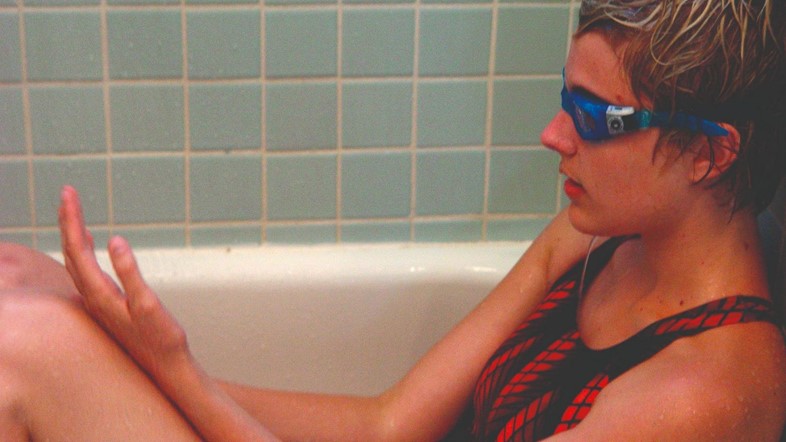
Hannah Takes the Stairs (2007)
In hindsight, Gerwig’s charisma was always going to be too big for mumblecore, a micro-budget, largely improvised subgenre reflecting the millennial set’s increasing urge to document their lives online. But it’s fun to see her run rings around the cast in Joe Swanberg’s classic entry into the genre, which sees Gerwig play a restless intern at a production company drifting between relationships. In an interview with Whit Stillman last year, founding mumblecore member Andrew Bujalski fondly recalled being upstaged by his co-star: “I mean, to see that talent in bloom … I thought we were all on this goofy little indie project together, making it up as we went along. But I do a scene with Greta and realise, ‘Oh, she’s a real actor.’ To go against that power and think, ‘Oh shit, I’m supposed to hold up my end of this.’ I did my best, but she carried me.”
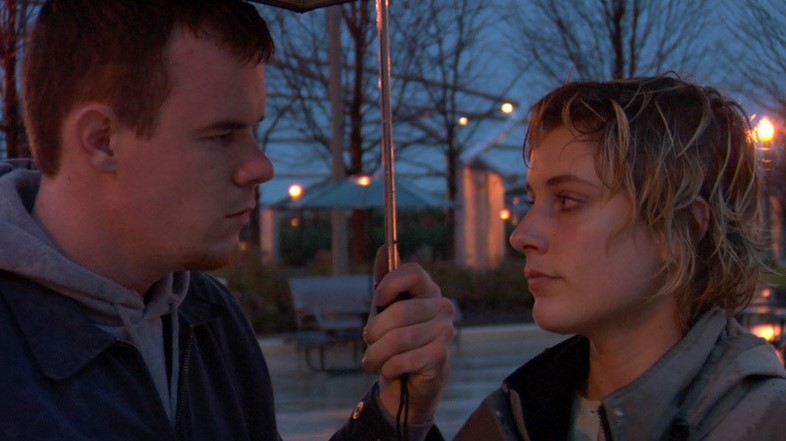
Nights and Weekends (2008)
Another gem from the mumblecore era, Gerwig co-directed this sweet – and surprisingly graphic – relationship drama with Swanberg, shot over an 18-month period to capture the mood of a long-distance relationship as it sputters out. But Gerwig would soon go on to explore other, more writerly modes of filmmaking that better suited her literary ambitions.
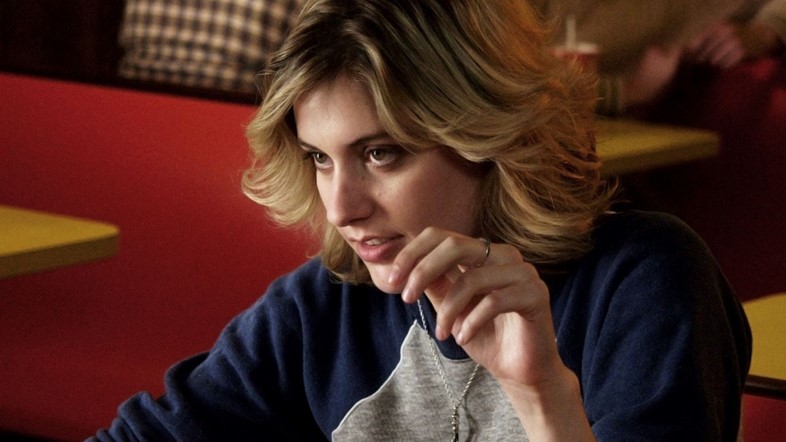
The House of the Devil (2009)
This early supporting role saw Gerwig branch out with a slow-burning horror from Pearl director Ti West. She aces her role as college student Megan, juicing up what might have been a bog-standard BFF part with some whip-smart, cooler older-sister vibes before making a memorable exit.
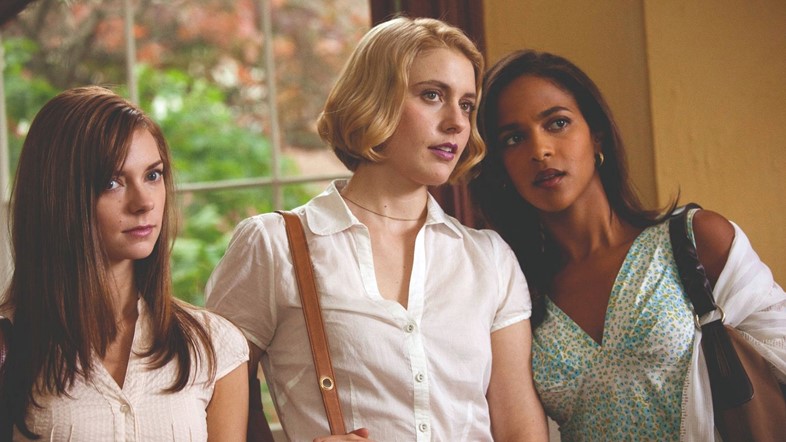
Damsels in Distress (2011)
Whit Stillman seems like a natural fit for Gerwig, who taps her inner girly-swot as a student running a suicide prevention centre in this literary campus comedy. An influence on the mumblecore set and Noah Baumbach in particular, Stillman let slip in an interview that the younger filmmakers’ DIY approach had inspired him to get funding for his film at a point when his career seemed “dead in the water”, a nice full-circle moment that can’t prevent Damsels in Distress from being a weirdly off-key dud – think a magna cum laude Clueless, but nowhere near as sweet.
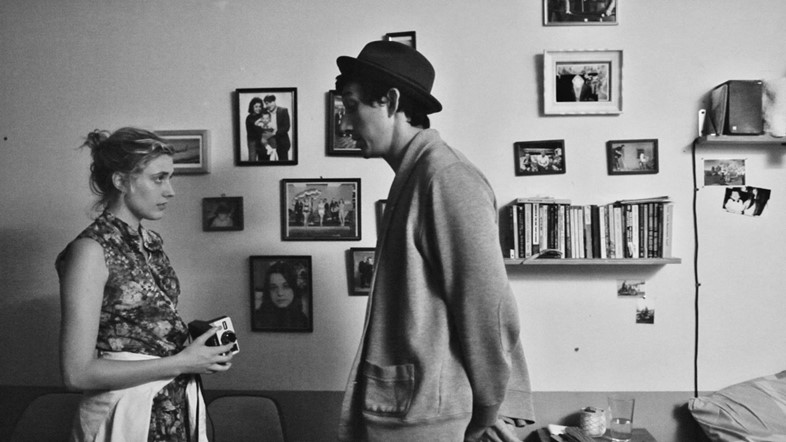
Frances Ha (2012)
Music! Montages! Razor-sharp dialogue! Frances Ha is the film where Gerwig begins to put it all together as an artist, laying the blueprint for her later work as a director. Its portrait of an aspiring ballet dancer dodging rent cheques in New York City is both affectionate and mocking, with a firecracker script that finds fertile middle ground between Gerwig’s life-affirming tendencies and Baumbach’s more naturally downbeat style. Even the ending is perfect – Frances Ha, indeed.
The Films of Greta Gerwig season is on at the BFI in London throughout July.
